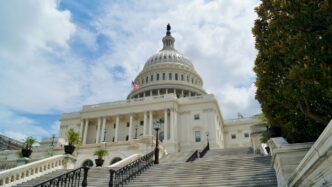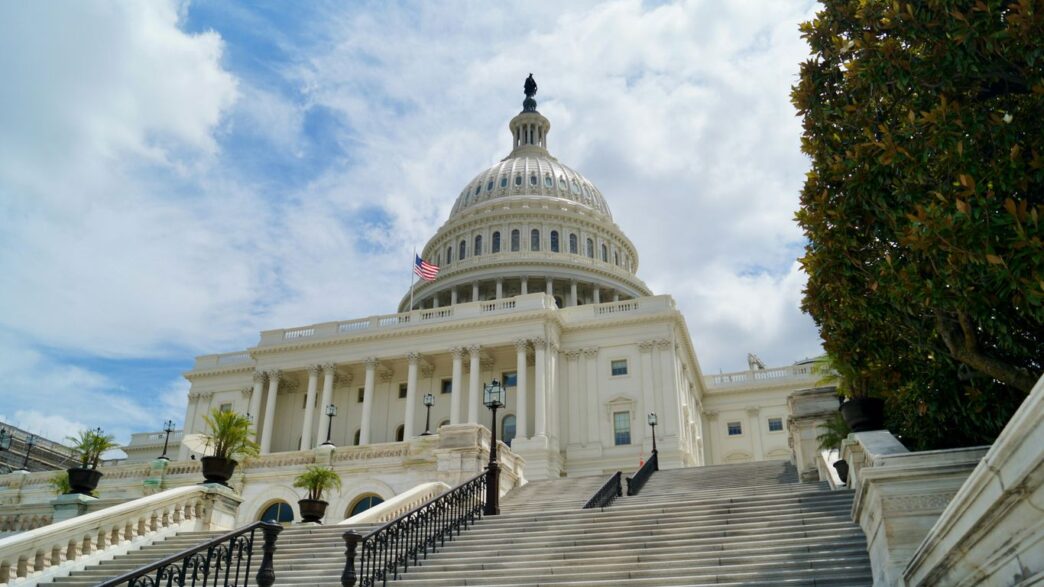Project 2025 is proposing some pretty big changes for the Federal Communications Commission, and Commissioner Brendan Carr seems to be at the center of it all. If he takes the helm, we could see a major reset in how the internet, media, and telecommunications industries are regulated. It’s a lot to take in, but understanding these potential shifts is important for anyone involved in these sectors.
Key Takeaways
- The Project 2025 FCC agenda, spearheaded by Brendan Carr, aims to reduce what’s seen as ‘censorship’ online and boost free speech, potentially by reinterpreting Section 230 to hold platforms more accountable.
- Net neutrality rules put in place by the previous administration are likely to be overturned, with a focus on reducing what proponents see as regulatory hurdles to investment in broadband.
- There might be a shift in how broadband infrastructure is funded, with a greater emphasis on satellite-based solutions like Starlink, potentially redirecting funds from traditional terrestrial projects.
- Broadcast networks could face increased scrutiny regarding alleged bias and compliance with rules like ‘equal time,’ with potential probes into public broadcasting as well.
- The FCC might ease up on regulations for media and telecom mergers, making it easier for companies to consolidate, while also looking at new rules for AI in political advertising and reducing industry fees.
Project 2025 FCC: A New Era of Regulation
Brendan Carr’s Vision for the Federal Communications Commission
Brendan Carr, tapped to lead the FCC under Project 2025, has made his intentions clear. He’s talking about shaking things up, aiming to dismantle what he calls the ‘censorship cartel’ and bring back what he sees as true free speech rights online. As a current FCC member, Carr knows the agency inside and out, so we can expect some pretty big changes that will likely ripple through the telecom and tech industries. His vision seems to be about less government interference and more open platforms.
Dismantling the ‘Censorship Cartel’
Carr’s focus is sharp on Section 230 of the Communications Decency Act. This is the law that largely shields online platforms like Facebook, Google, and X from being sued over what their users post. Project 2025 suggests that the FCC should clarify that this immunity isn’t a free pass for everything platforms do. The idea is to make platforms more responsible for their content moderation choices. This could mean:
- Requiring platforms to be more upfront about their rules for taking down content.
- Establishing clearer ways for users to appeal content removal decisions.
- Potentially pushing for new laws that stop platforms from unfairly censoring certain viewpoints.
Restoring Free Speech Rights Online
Beyond Section 230, Carr’s agenda includes pushing for greater transparency from online platforms. Think of it like how broadband providers have to disclose certain information; the proposal is to make social media companies do the same regarding their content moderation practices and algorithms. The goal, as stated in Project 2025, is to prevent what they view as biased suppression of speech. This could lead to new rules that demand platforms reveal how they decide what gets seen and what gets taken down, and how users can seek recourse if they feel their content was wrongly removed. It’s a move that could significantly alter how online content is managed and who is held accountable.
Reinterpreting Section 230: Impact on Online Content
So, Section 230. It’s this part of a law from way back in 1996 that basically says online platforms aren’t responsible for what users post. Think of it like a shield for sites like Facebook, Twitter, or even your local forum. They can host all sorts of stuff without getting sued over it. But, Project 2025, and specifically Brendan Carr’s ideas for the FCC, want to take a serious look at changing that. The core idea is to make these platforms more accountable for the content they host and promote.
What does this mean in practice? Well, it could shake things up quite a bit.
Limiting Platform Immunity
Right now, platforms have pretty broad protection. If someone posts something illegal or harmful, you can’t usually sue the platform itself. They’re just the messenger, so to speak. The push here is to chip away at that immunity. The thinking is that if platforms have more skin in the game, they’ll be more careful about what stays up. This could mean they start moderating content more aggressively, or perhaps they’ll be more selective about who they allow to post in the first place. It’s a tricky balance, though, because some worry this could lead to smaller platforms shutting down user content altogether, fearing lawsuits they can’t afford to fight. It might also mean that only the biggest companies, with armies of lawyers, can really handle hosting user content.
Mandating Algorithm and Moderation Policy Disclosure
This is another big one. The idea is to pull back the curtain on how these platforms work. They want companies to show us how their algorithms decide what content gets seen and what doesn’t. They also want to see the rules platforms use for moderating content – what gets taken down, what gets flagged, and why.
Here’s a quick rundown of what that might involve:
- Algorithm Transparency: Platforms would have to explain how their systems recommend or rank content. This could expose how certain viewpoints get amplified or suppressed.
- Moderation Policy Clarity: Companies would need to clearly state their rules for content removal and provide a way for users to appeal decisions.
- Disclosure of Practices: This could extend to revealing how they handle user data and how they respond to requests for content removal.
Some folks argue this is necessary for fairness and to combat bias. Others worry it could reveal trade secrets, making it easier for bad actors to game the system or for competitors to copy their technology. It could also lead to more legal headaches if the disclosed policies are seen as discriminatory.
Accountability for Online Publishing
This ties into the other points. If platforms have less immunity and have to be more transparent, then they’re naturally going to be held more accountable. It’s like saying, ‘You can’t hide behind Section 230 anymore.’ This could mean platforms are directly responsible for certain types of content, especially if they’re seen as actively promoting it through their algorithms. It’s a shift from being a passive host to an active publisher, in a way. The goal, proponents say, is to create a more responsible online environment. The big question remains: how exactly will this accountability be measured and enforced without stifling the very speech it aims to protect?
Net Neutrality Under Review

The concept of net neutrality, which essentially means internet service providers (ISPs) can’t block, slow down, or charge more for certain online content, has been a real back-and-forth issue at the FCC. It feels like every time a new administration comes in, the rules get rewritten. Commissioner Brendan Carr has been pretty vocal about this, arguing that the FCC’s stance on net neutrality has been more about political shifts than solid evidence. He’s pointed out that Title II of the Communications Act, which is often used to enforce net neutrality, has become a sort of political football.
The future of the FCC’s recent net neutrality order is looking pretty uncertain. There are a few ways this could play out:
- Court Challenges: The order is already tied up in the Sixth Circuit Court of Appeals. A recent Supreme Court decision might give the court grounds to overturn the FCC’s order without the FCC even having to do anything.
- Congressional Action: With a new Congress, there’s a possibility they could use the Congressional Review Act to repeal the order. Even though the order took effect recently, it hasn’t fully kicked in yet due to court stays, which might make it eligible for this kind of repeal.
- FCC Rulemaking: The new FCC could also initiate its own process to repeal the order, though the other avenues might make this less likely.
This constant back-and-forth raises concerns about regulatory stability. Some argue that this uncertainty can discourage investment in broadband infrastructure, as companies might be hesitant to spend big if the rules could change dramatically overnight. On the flip side, there’s a growing interest in satellite-based broadband solutions, like Starlink. Commissioner Carr has been a supporter of these, suggesting that current regulations might be unfairly hindering their growth and participation in federal programs. The debate is really about how to balance consumer protection with fostering innovation and investment in the internet’s future.
Shifting Broadband Infrastructure Priorities
Project 2025 seems to be eyeing a pretty significant change in how we think about getting internet to everyone, especially in those harder-to-reach places. Instead of focusing solely on the usual ground-based cables and towers, there’s a strong push towards using satellite technology. Think Starlink and Kuiper – these low-Earth orbit satellites could become a much bigger part of the picture.
Satellite-Centric Approach to Connectivity
This satellite-first idea isn’t just about filling gaps. It’s about potentially reshaping the entire broadband landscape. The thinking is that satellites can offer a faster way to deploy high-speed internet to rural and underserved areas without the massive upfront costs of laying fiber optic cables. It’s a way to bypass some of the traditional hurdles that have slowed down broadband expansion for years. This shift could mean less reliance on established telecom giants and more opportunities for newer, satellite-based providers.
Critiques of Regulatory Barriers for Satellite Initiatives
There’s a feeling from some, including FCC Commissioner Brendan Carr, that current regulations might be unfairly holding back satellite internet services. He’s been pretty vocal about what he sees as "regulatory harassment" against companies like Starlink, suggesting that some FCC decisions have created impossible standards. The idea is that if we want to truly expand broadband, we need to clear away these perceived obstacles. This includes looking at how programs like the Rural Digital Opportunity Fund (RDOF) have handled satellite providers. It’s a complex issue, with arguments about fairness and the practicalities of deploying new technologies.
Potential Redistribution of Broadband Funding
This focus on satellites could also mean a change in how existing broadband funding is used. Programs like the Broadband Equity, Access, and Deployment (BEAD) program, which has been largely geared towards terrestrial infrastructure, might see a redirection of funds. The emphasis could shift to supporting satellite projects, potentially altering the competitive dynamic for broadband deployment. This could lead to a different mix of companies vying for federal dollars, and it raises questions about how best to achieve universal broadband access in the most effective way. It’s a move that could have ripple effects across the entire telecommunications sector, impacting everything from investment strategies to the types of services available to consumers. We’re also seeing discussions about how state artificial intelligence regulations might affect these broadband expansion efforts [09d3].
Addressing Broadcast Network Allegations
Brendan Carr, as a key figure in Project 2025, has signaled a significant shift in how the FCC might approach broadcast networks. There’s a focus on alleged bias and how networks fulfill their public interest obligations. This suggests a more active FCC role in scrutinizing content and editorial decisions of broadcasters.
Oversight of Alleged Broadcast Network Bias
Carr has been vocal about concerns regarding perceived bias in news reporting by major broadcast networks. He has pointed to specific instances, such as the editing of interviews and appearances on popular shows, suggesting these actions might violate FCC rules. The idea is that broadcasters, by using public airwaves, have a responsibility to serve the public interest broadly, not just a narrow political viewpoint. This could lead to more formal investigations into how news programs are produced and presented.
Probes into News Distortion and Equal Time Rules
Under a Project 2025 framework, the FCC might intensify its examination of broadcast networks concerning news distortion and the application of equal time rules. This involves looking closely at whether content presented on air unfairly favors one political perspective or if candidates receive equitable treatment. For example, if a program features a political figure, the FCC might investigate if other candidates are given similar opportunities to appear or if the content itself is presented in a way that distorts the news.
Scrutiny of Public Broadcasting Compliance
Public broadcasting, often seen as a separate entity, could also face increased scrutiny. The focus would be on whether these organizations are adhering to their mandates and regulations. This might involve reviewing their programming choices, funding sources, and overall compliance with FCC guidelines. The aim is to ensure that public funds and broadcast licenses are used in a manner that truly serves the public interest, without undue political influence or bias.
Merger and Acquisition Landscape

When Project 2025 talks about the FCC, it really seems to want to shake things up, especially when it comes to companies buying other companies or merging. The general idea seems to be that the FCC will be a lot more open to big telecom and media companies joining forces. It feels like the days of strict oversight might be winding down, making it easier for these deals to get approved.
A Smoother Path for Telecom and Media Consolidation
Under a different administration, the FCC often looked at whether a merger was good for the public. But the thinking here is that the FCC will look at this much more narrowly. This could mean a lot more mergers and acquisitions happening in the telecom and media world, maybe even more than we saw back in the 90s. Consumer groups that usually speak up against these deals might not have as much of a voice.
Narrower Interpretation of Public Interest Standard
So, what does ‘public interest’ even mean in this context? It seems like the new approach will be less about broad public benefit and more about specific, perhaps narrower, criteria. This shift could really change how deals are evaluated. It’s like changing the rules of the game mid-play.
Influence of Consumer Advocacy Groups
It looks like groups that have traditionally pushed back against media consolidation might find it harder to get their points across. If the FCC is less inclined to listen to these concerns, it could pave the way for more deals to go through without as much public scrutiny. This could lead to fewer, but larger, companies dominating the market.
Artificial Intelligence and Political Advertising
This section dives into how Project 2025 might shake up the rules around AI in political ads. It’s a pretty hot topic right now, with AI popping up everywhere, and political campaigns are definitely looking at how to use it. The big question is how the FCC, especially under a new direction, will handle this.
Proposed Rule for AI Disclosure in Political Ads
There’s been talk about requiring clear labels on political ads that use AI-generated content. Think deepfakes or AI-created voices – the idea is that voters should know when they’re not seeing or hearing something real. This push for transparency aims to prevent deception and maintain trust in political messaging. It’s about making sure people know what they’re consuming. The FCC has actually put out a proposal on this, but it faced some pushback.
Dissenting Views on Jurisdictional Reach
Not everyone agrees on who should be making these rules. Some commissioners, like Brendan Carr, have pointed out that the FCC’s authority is mainly for traditional broadcast and cable. They argue that trying to regulate AI in ads on social media or streaming services goes beyond the FCC’s actual power. It’s a bit of a jurisdictional tug-of-war, and it makes sense to question where the FCC’s authority really ends, especially with how fast technology is changing.
Concerns Over a Patchwork of Inconsistent Rules
Because of these jurisdictional debates, there’s a real worry that we could end up with a confusing mess of different rules. If some states or platforms have one set of guidelines for AI in political ads and others have something completely different, it’s going to be tough for campaigns and confusing for voters. This could lead to a situation where:
- Campaigns struggle to comply with varying regulations.
- Voters are unsure about the authenticity of ads across different platforms.
- Enforcement becomes incredibly difficult and inconsistent.
Essentially, the goal is to figure out how to manage AI in political advertising without creating more problems than we solve. It’s a balancing act, for sure.
Reducing Regulatory Fees and Industry Oversight
It looks like the FCC might be looking to slim down its own operations, cutting back on the fees it charges companies and generally easing up on how much it watches over the industry. This isn’t just about saving money; it’s a whole shift in how the FCC sees its job. The idea is to make things simpler and, hopefully, help businesses grow without so many hurdles.
Overhauling Fee Assessment and Collection
Right now, figuring out and collecting these fees can be a real headache. There’s talk of a big change, maybe even needing new laws from Congress to really shake things up. But even without new laws, the FCC could start questioning every fee, tossing out the ones that don’t seem necessary, and just making the whole system way easier to deal with. Think less paperwork, fewer complicated forms, and a clearer idea of what you owe and why.
Simplifying and Optimizing Regulatory Processes
Beyond just the fees, the FCC might be looking at its own internal processes. This could mean cutting down on the steps companies have to take to get approvals or comply with rules. The goal here is to remove unnecessary steps and make the whole system run more smoothly. It’s about getting rid of red tape that doesn’t really serve a purpose and just slows everything down. This could involve:
- Reviewing all current reporting requirements.
- Streamlining application and approval timelines.
- Increasing transparency in regulatory procedures.
Focus on Economic Expansion and Deregulation
Ultimately, this push seems to be about helping the economy. By reducing the financial and administrative burdens on companies, the hope is that they’ll have more resources to invest, innovate, and expand. It’s a move towards less government intervention, letting the market and businesses take the lead. This approach suggests a belief that less regulation can actually lead to more growth and better services for everyone in the long run.
What’s Next for the FCC?
So, what does all this mean for the future? With Brendan Carr potentially at the helm of the FCC, and a new administration in place, we’re likely looking at some pretty big changes. Think less regulation for big tech and telecom companies, and maybe a different approach to things like net neutrality and how online platforms handle content. It’s a lot to take in, and for anyone involved in the tech and media world, it’s probably a good idea to keep a close eye on what happens next. These shifts could really shake things up, affecting everything from how we use the internet to what we see and hear online. It’s going to be interesting to see how it all plays out.
Frequently Asked Questions
What is Project 2025 and how might it change the FCC?
Project 2025 is a plan that suggests big changes for the government if a new president comes into power. For the Federal Communications Commission (FCC), which makes rules for things like TV, radio, and the internet, it means a potential shift towards less regulation. People like Brendan Carr, who wrote a part of the plan about the FCC, believe in cutting down rules that they think limit free speech and business growth.
How could Section 230 be changed, and what does that mean for online sites?
Section 230 is a law that protects websites like Facebook and Google from being sued for what users post. Project 2025 suggests changing this law. The idea is to make these online platforms more responsible for the content they host. This could mean they might have to reveal how their systems work and how they decide what to remove, potentially making them more accountable for what’s published online.
What is net neutrality, and how might it be affected?
Net neutrality is the idea that all internet traffic should be treated equally by internet providers, like your cable or phone company. Some people worry that if net neutrality rules are weakened, internet providers could slow down or block certain websites or services. Project 2025 suggests that the FCC might get rid of the current net neutrality rules, which could change how we access and use the internet.
Will satellite internet become more important?
Yes, Project 2025 seems to favor satellite internet services, like Starlink. The plan suggests that more government money and support might go towards building internet access through satellites, especially in areas where traditional internet is hard to set up. This could mean fewer rules that might be seen as blocking satellite companies from competing.
Could there be more scrutiny on TV news and political ads?
There’s a possibility that the FCC might look more closely at TV news channels to see if they are showing bias or breaking rules about fairness, like giving equal time to different political viewpoints. Also, there’s discussion about requiring clear labels for political ads that use artificial intelligence (AI) to create fake content, though there are disagreements about who should enforce these rules.
What does ‘reducing regulatory fees’ mean for businesses?
This means that companies that are regulated by the FCC might have to pay less in fees. The goal is to make it easier and cheaper for these businesses to operate. Project 2025 suggests simplifying the rules and processes for these fees, aiming to encourage more investment and economic activity in the telecommunications and media industries.














